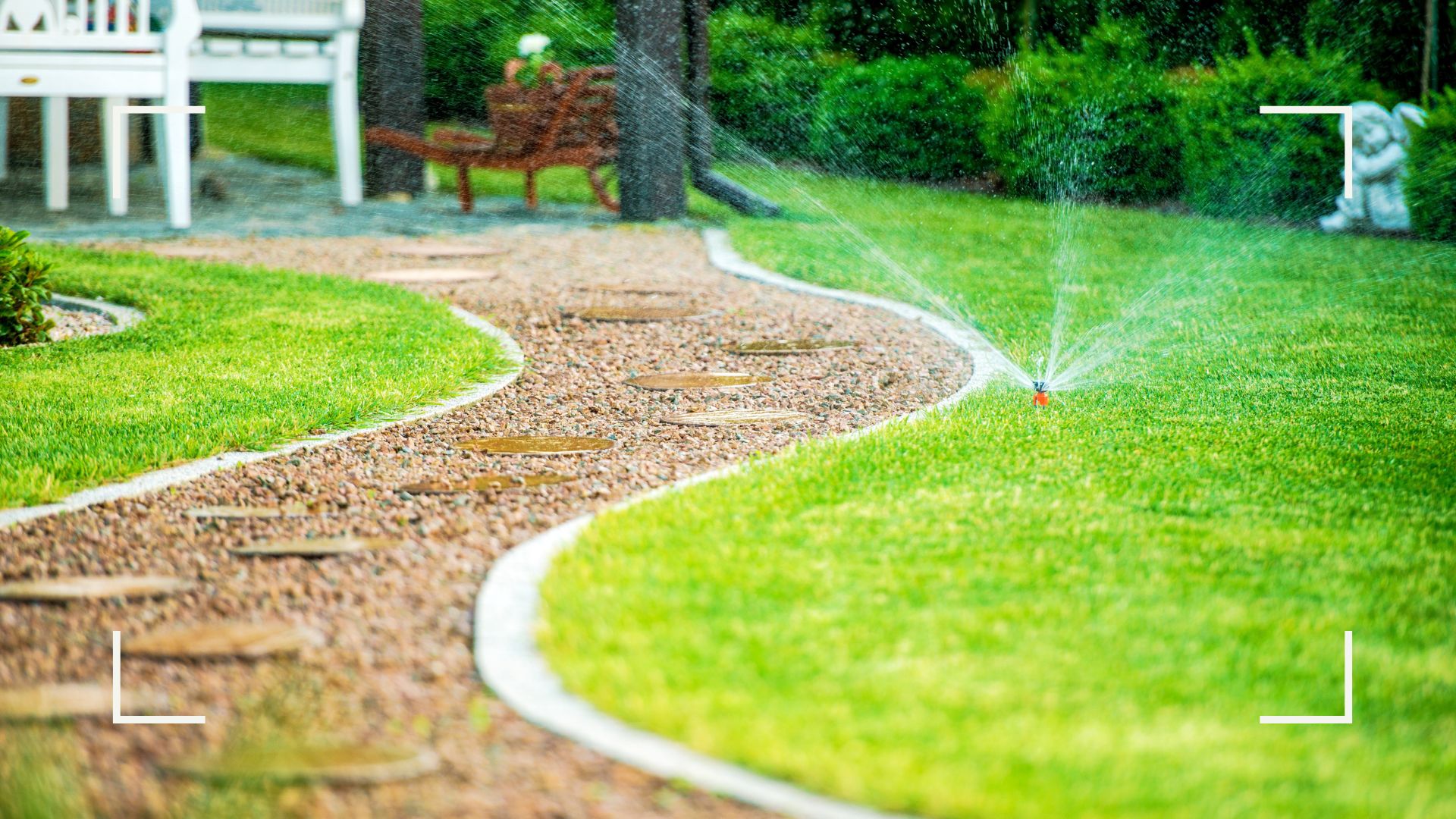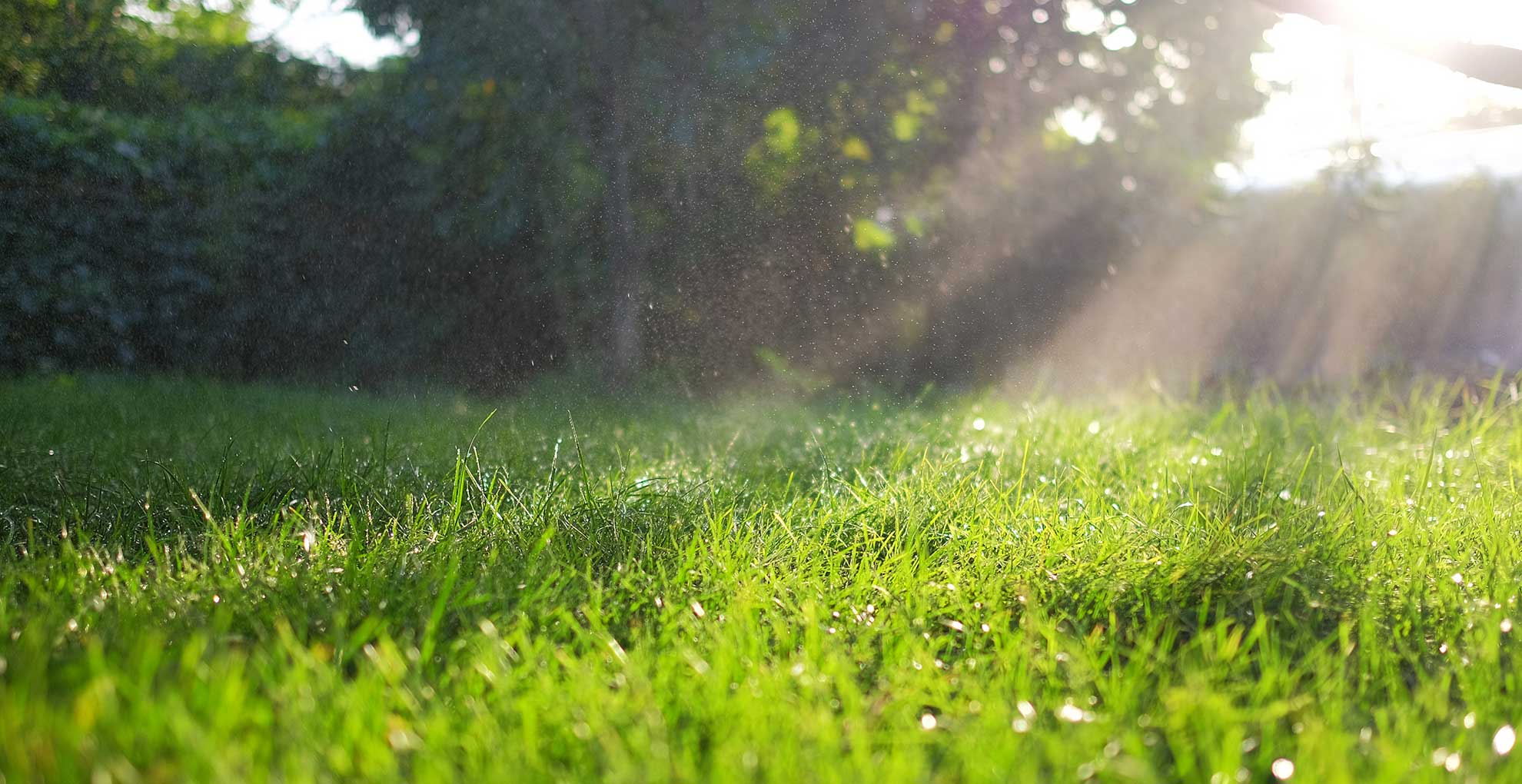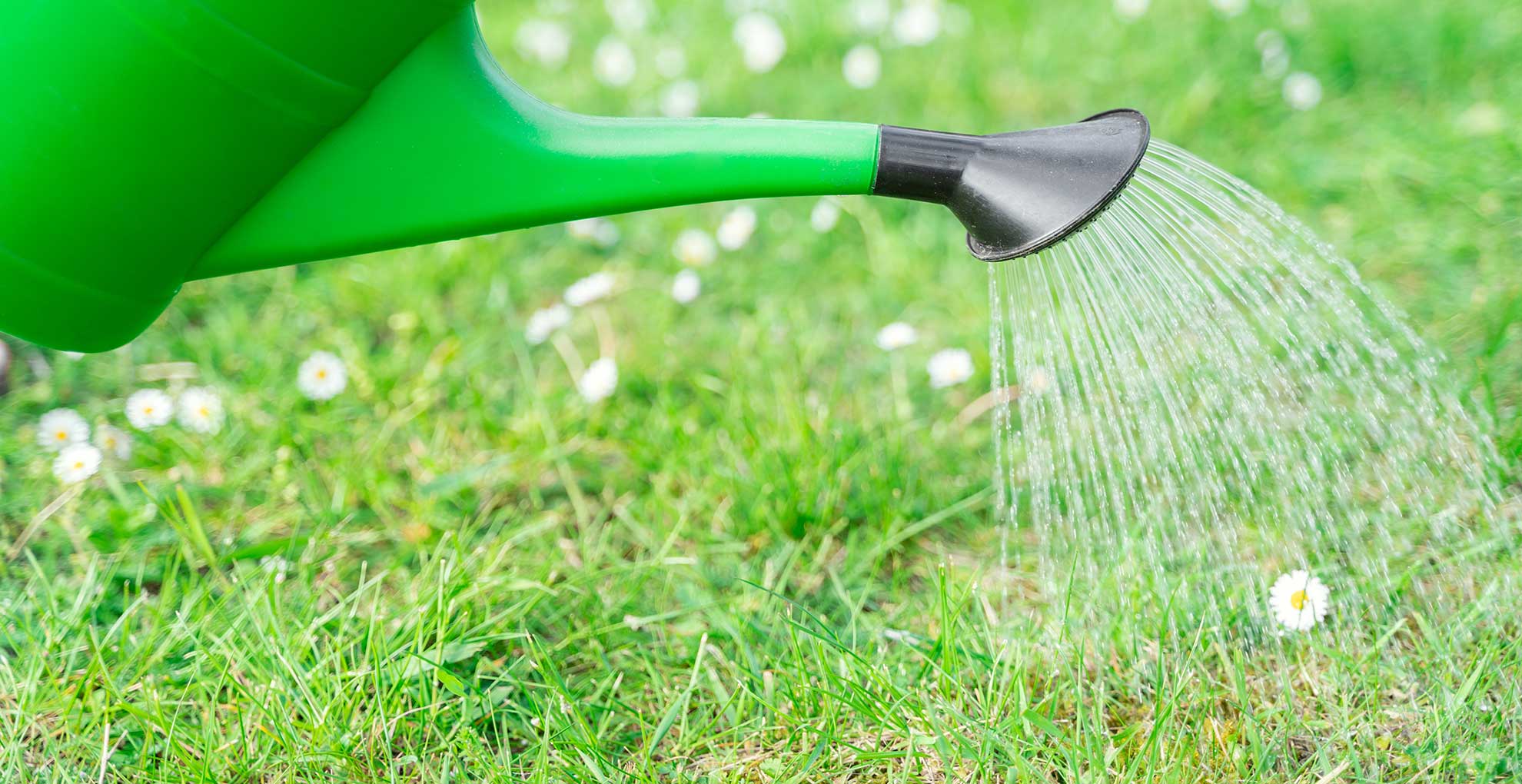
Knowing when to water your lawn during the summer months is key to maintaining healthier grass because the sun and its heat can have detrimental effects when it comes to watering.
Avoiding common lawn care mistakes is the key to healthier grass all year round, particularly during the summer when temperatures are at their highest and watering or mowing can become affected due to grass blades being at risk of 'stress' and dehydration. There's also the worry that watering at the wrong times can lead to unnecessarily wasting precious water.
Similar to seeking guidance on how often you should mow the lawn or how often to fertilize essential lawn maintenance is all about timing.
We asked lawn experts to confirm the best time to water lawns and how best to do it during the summer months to ensure your grass is healthy, happy, and suitably hydrated.
What is the best time to water your lawn?
It's often easy to assume how long you water your lawn is the only measure of how healthy your grass is, but in actual fact, the time of day plays if not more but equal importance on your lawn's overall well-being – especially during the summer months.
It's all about climate conditions, choosing the most suitable time of day to meet the aim of hydrating the grass without scorching it but also allowing enough time for the water to penetrate the soil, to avoid it sitting on the surface (more on that later.) So what is the best time to water your lawn during summer? We asked an irrigation expert to share their professional advice.
"The best time of day for watering your lawn during summer is either early morning," explains Sean Lade, irrigation expert and director of Easy Garden Irrigation. Never during the day. "Because you lose water to evaporation (when it's too hot). Therefore this timing helps prevent wasting water and helps the water penetrate deep into the soil."
While you can water late in the evening once the sun has started to set so temperatures are still warm but there's no threat of scorching your lawn or of water evaporating Sean warns: " Avoid watering late too in the evening as the grass might remain wet if the temperature drops overnight and this can encourage disease in the lawn."
In conclusion, we recommend aiming to water your lawn early in the morning before the sun is too impactful. The actual times of day will differ depending on where you live but as a good general guideline before sunrise is prime time but anywhere between 5 am-10 am is best for morning watering.

What is the best method for watering your lawn?
Is there a best way to water your lawn? Is a sprinkler better? Is using a hose easier? Is using a watering can realistic for a whole lawn? "Using a hose and sprinkler connected to a garden tap is the best option for most people," advises Sean. "If you wanted to use rainwater from a water butt (which we always recommend as a sustainable living choice), you would still use a hose and sprinkler, but you would also need a water butt pump to draw the water from a water butt and push through the hose."
3 essential tips when watering your lawn in summer
To ensure you are watering your lawn with maximum efficiency here are our top tips on watering established lawns during the warmer months...
1. Where possible use rainwater

Sustainability and eco-friendly measures are some of the biggest gardening trends for 2023, as we look to help the planet in any way we can. An easy way to practice this is by utilizing rainwater, which also happens to be highly beneficial when watering the lawn. As we know only too well unpredictable modern climates mean there's always a chance of rainfall, even in the height of summer.
"Rainwater has higher levels of nitrogen which boosts growth," Sean explains "Just keep in mind if you plan to use rainwater to keep your garden watered during periods of drought, you will want to have an extra large water butt or rainwater harvester to ensure you have enough water for a couple of weeks for the period."
2. Avoid watering in direct sunlight
As already discussed it's important to choose the best time of day. Just as you shouldn't water garden borders, flower beds, and your best plants during the hottest part of the day for fear of the sun's powerful rays scorching the leaves, you also shouldn't water grass blades during extreme heat either.
This is even more important when temperatures are hotter during the summer months when the sun is at its strongest, in comparison to temperatures in spring or fall.
3. Don't overwater water your lawn
In line with considering how often you should aerate your lawn consistency is key, too much can be detrimental to the well-being of the grass and soil – even in summer.
"Watering for 30 minutes every day applies for when we have scorching weather," says Sean. "Reducing this to 3-4 times per week in cooler, cloudier weather. Try to stick to a consistent schedule for best results."
4. Cut back on frequency if it rains
It might sound obvious to say but you need to take into account the amount of rainfall because the grass may remain saturated for a few days if we've had heavy rainfall. "Skip a day (of watering your lawn) when we’ve had over 10mm of rain," advises Sean.
In the current climate, we need to preserve water supplies where we can, so overwatering grass that doesn't need it should be avoided.







